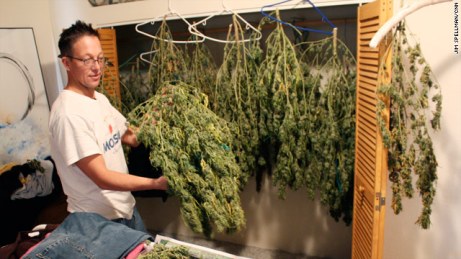 Decision Could Have Wide Impact Upon Marijuana Use By Tenants
Decision Could Have Wide Impact Upon Marijuana Use By Tenants
The law on marijuana and rental housing remains clouded to say the least. And that’s no pun. This week on April 8th, the Supreme Judicial Court will consider the first of probably many cases dealing with marijuana use in rental housing. In this particular case, Boston Housing Authority v. Figgs (SJC 11532), the high court will assess whether a state housing authority may evict a subsidized tenant and terminate her federal housing benefits for the alleged possession of less than one ounce of marijuana — which is no longer a criminal offense in Massachusetts, but still a crime under federal law. With the decriminalization of small amounts of marijuana, the rollout of the medical marijuana dispensaries and the conflict with federal drug laws, this case may have wide-ranging impacts upon the relationships of landlords, tenants, housing authorities and even condominium owners and trustees over the use of marijuana, both recreationally and medicinally.
Oral arguments are available via live stream here. Legal briefs and filings in the case can be found here. A final opinion and ruling is expected this summer.
This case should also put the new Medical Marijuana Law into re-focus. Landlords have been increasingly anxious about how to manage and regulate tenants’ use of medical and recreational marijuana, if at all. The law not only grants qualified patients the right to obtain medical marijuana but it also allows patients the right to grow a two-month supply of marijuana at home if they cannot get to a marijuana dispensary because they are too sick or too broke. There is a bill in the Legislature granting landlords the right to prohibit medical marijuana on rental property without fear of being sued for disability discrimination.
I’ll be monitoring this new and dynamic area of the law. It will surely be a hot topic in the next couple of years.
__________________________________________
 Richard D. Vetstein, Esq. is an experience Massachusetts landlord tenant and real estate attorney. If you are concerned or have questions about the new Medical Marijuana Law, please contact him at[email protected].
Richard D. Vetstein, Esq. is an experience Massachusetts landlord tenant and real estate attorney. If you are concerned or have questions about the new Medical Marijuana Law, please contact him at[email protected].
{ 1 comment }

















